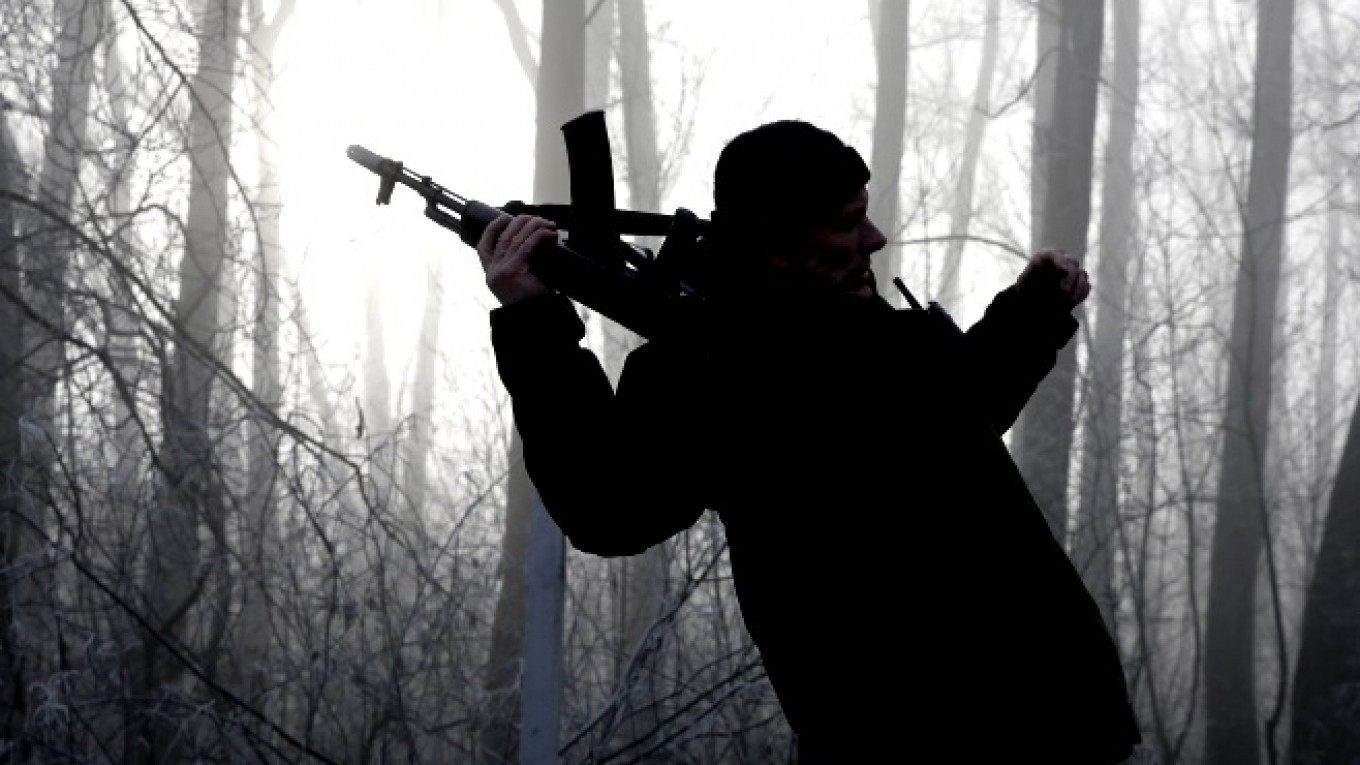Activist website Open Russia has published a map detailing the birthplaces of all Russian soldiers believed to have died fighting in Ukraine in 2014, with the largest group reported to have come from Moscow.
The report is based on a list of names released in November by the Gruz-200 group, a pro-Ukrainian grassroots organization that used publicly available information to determine the number and identities of 227 men believed to have died fighting in Ukraine in 2014.
The information relies on media reports and interviews with relatives of the deceased. Open Russia issued a disclaimer saying there was no way to verify whether all information obtained from Gruz-200 was accurate, but that Open Russia had conducted its own checks of the information offered.
Information on the deaths of Russian soldiers believed to have died in Ukraine has come largely from activists and opposition-minded journalists, while Russia's Defense Ministry has maintained that no Russian soldiers were sent to Ukraine.
Many journalists and Western leaders have maintained that there is ample evidence of Russia's direct involvement in the conflict.
The report published by Open Russia on Tuesday claimed that 15 Russian soldiers killed in Ukraine last year came from Moscow, 10 from recently annexed Crimea, 11 from the restive North Caucasus republic of Dagestan and nine from St. Petersburg.
Another nine were said to have come from the Rostov region, which is close to the border with Ukraine. The southern Krasnodar region just east of Crimea reportedly lost nine soldiers.
Chechnya also appeared on the list, with seven Russian troops reported to have died in Ukraine last year having come from the predominantly Muslim republic, the leader of which has expressed support for the separatists in eastern Ukraine.
In a separate report, Open Russia is compiling detailed information on each of the soldiers reported to have died in the line of duty. A statement on the website says all of the information has been verified as best as it can be.
"In each case, we search for confirmation, try to determine the time and location of death and the most trustworthy sources," the statement said.
An initiative among activists and journalists to prove that Russian soldiers were sent to Ukraine kicked into high gear in mid-November, when 12 Russian paratroopers were buried in the Pskov region, their cause of death unknown.
Speculation ran rampant that the men had died fighting alongside separatists in eastern Ukraine, although Russia's Defense Ministry denied this and refused to disclose information on their cause of death.
The soldiers' grave markers were removed after journalists began asking questions, and an attack on several journalists who went to Pskov to research the soldiers' deaths fueled further speculation of a cover-up.
A Message from The Moscow Times:
Dear readers,
We are facing unprecedented challenges. Russia's Prosecutor General's Office has designated The Moscow Times as an "undesirable" organization, criminalizing our work and putting our staff at risk of prosecution. This follows our earlier unjust labeling as a "foreign agent."
These actions are direct attempts to silence independent journalism in Russia. The authorities claim our work "discredits the decisions of the Russian leadership." We see things differently: we strive to provide accurate, unbiased reporting on Russia.
We, the journalists of The Moscow Times, refuse to be silenced. But to continue our work, we need your help.
Your support, no matter how small, makes a world of difference. If you can, please support us monthly starting from just $2. It's quick to set up, and every contribution makes a significant impact.
By supporting The Moscow Times, you're defending open, independent journalism in the face of repression. Thank you for standing with us.
Remind me later.


